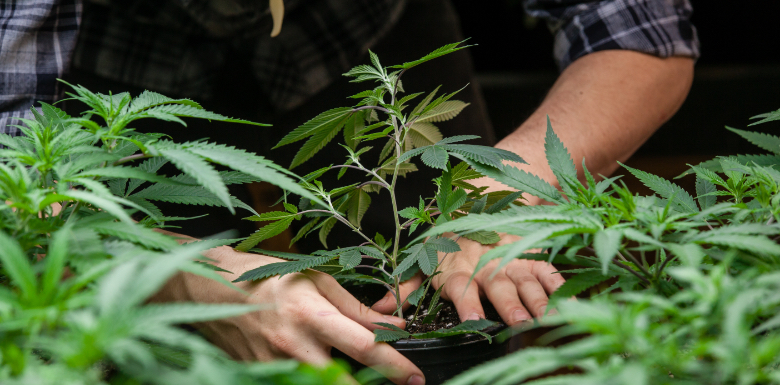Expected to reach $146 billion by 2025, the California cannabis industry is growing at a breakneck pace. But this growth is not without its pains. Despite the best efforts of regulators to put in place a legal framework that ensures consumer safety, effective taxation, and profits for businesses, the cannabis industry has encountered several unexpected problems, one of which is a bottleneck in the supply chain.
Except in the case of micro-businesses, all commercial adult use cannabis must pass through a licensed distributor before reaching consumers. However, there aren’t enough distributors to handle all of the cannabis being grown in different parts of California. The Department of Food and Agriculture has issued almost 5,000 cultivation licenses, but there are only around 400 licensed distributors operating in the state.
There Aren’t Enough Licensed Distributors to Connect Growers with Retailers
In some parts of California, there are simply no distributors based locally. And most distributors are unwilling to drive hundreds of miles to pick up product unless they have an established and reliable relationship with a grower. The problem is especially acute in Trinity County. The locality’s remoteness made it an ideal place to grow cannabis in the days of prohibition. But now, Trinity growers are struggling to get their product to market.
Trinity County counts 200 or so licensed cannabis farms, but zero distributors. Only a few non-local distributors have been willing to work with these remote farms. As a result, in 2017 thousands of pounds of marijuana went unsold through legal channels. Some growers likely had to resort to selling their product on the black market – at the risk of losing their license and facing devastating criminal penalties.
Local Regulations Can Make it Impossible to Open Certain Cannabis Businesses
State regulators created straightforward processes and requirements for obtaining cannabis business licenses. But for cannabis entrepreneurs, the true challenge is often obtaining permission to operate from a local government. In some municipalities, recreational cannabis businesses are banned outright. And in those that do permit recreational cannabis businesses to operate, the permitting requirements can be onerous.
Trinity County cannabis growers complained that the county planning department requires too much of potential distributors, essentially dissuading them from even trying to go through the permitting process. So some growers looked into acquiring transportation licenses so that they could bring their own product to non-local distributors. But even the transportation businesses permitting process was prohibitive, requiring the applicant to show that their facilities met many of the same standards required of restaurants, such as sprinklers and ventilation.
Fortunately, the Trinity County Board of Supervisors listened to reason and in September they amended the permitting process for growers seeking transportation licenses. Reportedly, some companies are in the process of obtaining distribution licenses in the county, but none are expected to begin operations in the near future. Thus, it could be months or even a year before Trinity gets connected to the statewide cannabis market.
Federal Law Enforcement Is Interfering with the Supply Chain
There is another problem for prospective transporters and distributors in remote locations. State Route 299, which connects Trinity County to the rest of the state, runs through federal land and is patrolled by federal law enforcement officers from the forest service. Several people transporting cannabis in accordance with state law have nonetheless been stopped and arrested on Route 299 for violating federal law. This problem has occurred in other parts of the state that are near international borders or federal lands.
Contact a Marijuana Lawyer for Help with Your Company
The cannabis industry is full of promise, but there are also challenges at every turn for the prospective cannabis entrepreneur. For this reason, retaining an experienced marijuana lawyer is essential if you want to get into the business. For more information on the legal requirements for opening and operating a cannabis business, contact McElfresh Law today at (858) 756-7107 to schedule a consultation.
